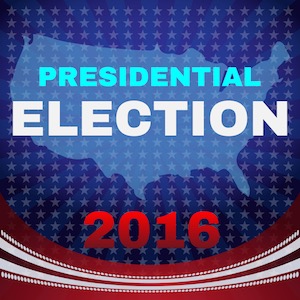 Elections matter. Unfortunately, all too often in the intellectual property community little time is spent considering what the outcome of an election might mean for the industry. Indeed, it has been perplexing to watch so many within the intellectual property community support candidates over the years that take positions directly and undeniably harmful to broad industry interests. I have even seen many within the IP community vociferously support candidates that champion positions that directly and quite negatively impacted their own business interests. For some it was a conscious choice to support a candidate that they knew will be bad for business, but for others they simply didn’t know.
Elections matter. Unfortunately, all too often in the intellectual property community little time is spent considering what the outcome of an election might mean for the industry. Indeed, it has been perplexing to watch so many within the intellectual property community support candidates over the years that take positions directly and undeniably harmful to broad industry interests. I have even seen many within the IP community vociferously support candidates that champion positions that directly and quite negatively impacted their own business interests. For some it was a conscious choice to support a candidate that they knew will be bad for business, but for others they simply didn’t know.
Patents, intellectual property, innovation and technology policy may not decide who will become the next President of the United States, but the positions the Presidential candidates hold will greatly impact the industry, and a U.S. economy that is increasingly an innovation based digital economy.
Presidential politics also plays a critically important role in the day-to-day workings of the United States Patent and Trademark Office. Under President Obama the USPTO has largely been micro-managed from the White House, at least with respect to legislative and policy initiatives. Furthermore, the recently negotiated Trans Pacific Partnership (TPP) saw the White House cave on data exclusivity for biologics. Because the data exclusivity deal for biologics is so odious some observers speculate that the TPP might not come up for a vote in Congress until a lame duck session after the 2016 elections.
For those still unconvinced that elections matter even for the intellectual property community, allow me to remind you that President Obama supported and signed the America Invents Act (AIA). Whatever your opinion of that particular piece of legislation, it is undeniable that the USPTO played a large role in lobbying Congress with the Administration viewpoint. Not only did the AIA dramatically expand the definition of what qualifies as prior art to be used against every patent application filed, but the AIA also created the Patent Trial and Appeal Board (PTAB). Along with the PTAB came sweeping new powers to conduct administrative trials for the purpose of stripping patents from patent owners. The PTAB was dramatically expanded with the hiring of several hundred new Administrative Patent Judges (APJs), which were approved by the Department of Commerce. The first Chief Judge of the PTAB said during a public meeting that if the PTAB was not doing a certain amount of “death squading” they wouldn’t be doing the job they were hired to do. An unfortunate statement given that judges on every level are supposed to be impartial, but the tone set by elected leaders was clear, and it has been followed.
When the next round of patent reform starts to seriously work through Congress, which it inevitably will, who would you want drafting and articulating the position of the Executive Branch? Someone who believes more patent reform is a good start, or a Constitutional conservative who views patents as a property right? When it comes time to hire the next Director of the USPTO, whom do you want doing the hiring? When it comes time to appoint Federal Circuit judges, which one of the candidates do you trust to nominate the best person for the job?
Elections matter, and for that reason IPWatchdog.com will be following the Presidential candidates closely throughout the year. Later in the year we will broaden our coverage to the 2016 election to cover the election at large, with focus on pivotal races. In addition to the articles I will offer, and any other guest contributions we receive, I’m pleased to announce that Peter Harter of The Farrington Group has agreed to write a recurring column offering his unique insights and analysis.
What appears below is a quick snapshot of the Presidential candidates, with emphasis on positions relating to patents, technology, innovation and small business issues. Each candidate listed below has a dedicated profile page on IPWatchdog.com, which we will continue to update with additional information through the year.
Hillary Clinton
 Secretary Hillary Clinton has been a fixture in political life, on her own or in support of her husband, for at least two generations. A review of her campaign website shows that she has taken a position on a great many issues, from national security to social security preservation to protecting voting rights to, healthcare, labor, and much more. Among her most elaborate positions relate to reforming Wall Street, criminal justice reform, immigration reform, and LGBT equality.
Secretary Hillary Clinton has been a fixture in political life, on her own or in support of her husband, for at least two generations. A review of her campaign website shows that she has taken a position on a great many issues, from national security to social security preservation to protecting voting rights to, healthcare, labor, and much more. Among her most elaborate positions relate to reforming Wall Street, criminal justice reform, immigration reform, and LGBT equality.
Despite all the issues on which Clinton has taken a position, it does not seem as if patents, technology or innovation is among the matters on which she has spoken. Once possible exception is where Clinton has called for an increase in funding for scientific research at agencies like the National Institutes of Health and the National Science Foundation. Clinton also says on her website that it is her goal that the U.S. will generate enough renewable energy to power every home in America within 10 year of her taking office as President, how that will be accomplished is not explained. Clinton also pledges to the “a president for small business,” by supporting tax relief for America’s smallest businesses, making it easier to start a small business in the United States, and easing burdens on community banks that provide credit to small-business owners.
For more see Hillary Clinton’s profile.
Bernie Sanders
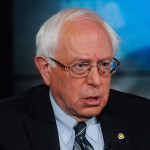 The main issues dominating the campaign of Senator Bernie Sanders (I-VT) read like a wish list for every progressive idea one could imagine. From top down solutions to income and wealth inequality to making college tuition free to guaranteeing everyone a living wage to fighting for LGBT equality to saving the planet, Sanders top issues are certainly an honest reflection of the man and his long held beliefs.
The main issues dominating the campaign of Senator Bernie Sanders (I-VT) read like a wish list for every progressive idea one could imagine. From top down solutions to income and wealth inequality to making college tuition free to guaranteeing everyone a living wage to fighting for LGBT equality to saving the planet, Sanders top issues are certainly an honest reflection of the man and his long held beliefs.
In terms of patents and innovation policy, Sanders emphatically states: “Access to health care is a human right, and that includes access to safe and affordable prescription drugs. It is time to enact prescription drug policies that work for everyone, not just the CEOs of the pharmaceutical industry.” He then goes on to state: “Americans pay, by far, the highest prices for prescription drugs in the entire world.” His solution would include negotiating a better deal on behalf of Medicare, but would also include allowing individuals, pharmacists and wholesalers to import prescription drugs from licensed Canadian Pharmacies. While Sander’s prescription drug plan on his website does not mention the word “patent,” allowing the importation of patented drugs, which are the expensive drugs that people cannot afford, would require significant changes to the U.S. patent laws that the pharmaceutical and biotechnology industries would fight with all of their might.
For more see Bernie Sanders’ profile.
Martin O’Malley
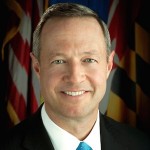 Governor Martin O’Malley (D-MD) supports what he calls sensible gun control laws, such as background checks for every gun sale. He supports an expansion of social security, debt-free college education, criminal justice reform, campaign finance reform, and welcoming Syrian refugees and other immigrants.
Governor Martin O’Malley (D-MD) supports what he calls sensible gun control laws, such as background checks for every gun sale. He supports an expansion of social security, debt-free college education, criminal justice reform, campaign finance reform, and welcoming Syrian refugees and other immigrants.
On patents, technology and innovation, O’Malley has not taken many positions. He does have want America to become energy independent and says, “New technologies have put a clean energy, energy independent future within reach…” As a part of his initiatives to combat climate change, O’Malley would retrofit federal buildings to the highest efficiency standards, direct the Environmental Protection Agency to aggressively limit greenhouse gases, deny new drilling permits and support a Clean Energy Financing Authority to support clean energy infrastructure. No mention of the scientific advancements necessary to achieve this alternative energy future a reality seems to be discussed.
For more see Martin O’Malley’s profile.
Donald Trump
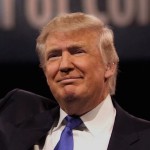 While Donald Trump’s uncle was an inventor, little is known about his personal views of the patent system, innovation or technology, and his campaign website seems to say nothing about innovation or technology. Indeed, no economic issues other than tax reform (i.e., eliminate the death tax, simplify the tax code, grow the economy by discouraging corporate inversions) are discussed.
While Donald Trump’s uncle was an inventor, little is known about his personal views of the patent system, innovation or technology, and his campaign website seems to say nothing about innovation or technology. Indeed, no economic issues other than tax reform (i.e., eliminate the death tax, simplify the tax code, grow the economy by discouraging corporate inversions) are discussed.
Like virtually all of the other Republicans, Trump supports tax reform. Trump’s first and major issue in this election is immigration reform, highlighted by a call to build a wall on the US-Mexican border. He also supports second amendment rights, reforms to the Veterans Administration, and has promised to do a better job negotiating trade deals, particularly with China. Little substance to flush out the big picture policies has surfaced, although that is not terribly surprising at this point in the election cycle.
For more see Donald Trump’s profile.
Ted Cruz
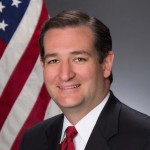 Senator Ted Cruz (R-TX) is a strong believer in religious liberty and he adamantly opposes legislation that would restrict the Second Amendment Rights of Americans. In this election the Cruz calling card will be that of a Constitutional Conservative. Currently his campaign website does not have a great deal of information about specific issues outside of core Constitutional Conservative issues.
Senator Ted Cruz (R-TX) is a strong believer in religious liberty and he adamantly opposes legislation that would restrict the Second Amendment Rights of Americans. In this election the Cruz calling card will be that of a Constitutional Conservative. Currently his campaign website does not have a great deal of information about specific issues outside of core Constitutional Conservative issues.
While running for Senate, Cruz still did some legal work. One piece of legal work he did while a candidate for Senate was to represent a patent owner before the Supreme Court of the United States. Cruz successfully argued and prevailed on behalf of the patent owner in Global-Tech Appliances, Inc. v. SEB S.A., no doubt making him quite familiar with the substance of patent law.
In June 2015, Senator Cruz, who sits on the Senate Judiciary Committee, voted against the PATENT Act. “We have in our economy a particular obligation to protect innovators, the little guy inventing the next great invention that will change the world,” Cruz said during a hearing on the bill on June 5, 2015. Cruz went on to leave open the possibility he would ultimately support the bill if it makes it to the Senate floor depending upon whether any amendments are made to change the bill’s language.
For more see Ted Cruz’s profile.
Marco Rubio
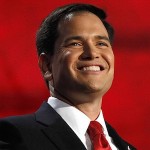 To date Senator Marco Rubio (R-FL) has not taken any specific policy positions on innovation policy or patents during the campaign, although he has previously said that the United States Patent and Trademark Office (USPTO) needs to speed up the processing of patent applications, and that he would have voted against the America Invents Act (AIA) without adoption of an amendment to once and for all end fee diversion. Like virtually all of the other Republican contenders he supporters lower taxes, particularly on businesses. Rubio’s calling card in this election will be foreign policy.
To date Senator Marco Rubio (R-FL) has not taken any specific policy positions on innovation policy or patents during the campaign, although he has previously said that the United States Patent and Trademark Office (USPTO) needs to speed up the processing of patent applications, and that he would have voted against the America Invents Act (AIA) without adoption of an amendment to once and for all end fee diversion. Like virtually all of the other Republican contenders he supporters lower taxes, particularly on businesses. Rubio’s calling card in this election will be foreign policy.
On issues of technology and innovation, Rubio has taken positions on various Internet related policies. He has pledged to vigorously defend Internet freedom, he has proposed the strengthening of American response to cyber attacks, including using “American power” to respond to “cyber attacks on American citizens, businesses, and governments.” Whether he means military power is unclear at this point. Rubio also pledges to fight new taxes on Internet commerce by making the Internet Tax Freedom Act permanent, and opposes new Internet sales taxes, which he says would kill jobs. He supports the reallocation of wireless spectrum from the federal government to commercial wireless services to meet commercial demand.
For more see Marco Rubio’s profile.
Chris Christie
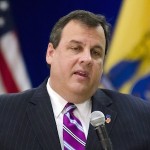 As the Chief Executive Officer of a State and a former federal prosecutor, Governor Chris Christie (R-NJ) has little experience with intellectual property or technology issues. Having said that, a review of Christie’s website shows a great deal more specific policy information than virtually any other candidate in the race. Christie has taken positions on criminal justice reform, social security and Medicare reform, national defense, foreign policy, education and the economy.
As the Chief Executive Officer of a State and a former federal prosecutor, Governor Chris Christie (R-NJ) has little experience with intellectual property or technology issues. Having said that, a review of Christie’s website shows a great deal more specific policy information than virtually any other candidate in the race. Christie has taken positions on criminal justice reform, social security and Medicare reform, national defense, foreign policy, education and the economy.
As part of Christie’s economic plan he is in favor of pro-growth tax reform, as are all the Republican candidates. But Christie does not stop there; he also talks about getting regulation under control (a favorite Republican talking point) and a national energy strategy. Christie also wants to ensure that America is the home of innovation. To do this will require investments in research and development, but that liquidity must also return to capital markets. His website explains he supports: “Reform which makes it easier for young high growth companies to access the capital markets is essential. To further encourage private sector innovation, the R&D tax credit should be made permanent as part of broader tax reform.”
Although he doesn’t use the word “patent” it would seem that he is describing the plight of start-ups being locked out of the capital markets because they cannot receive patents and/or because the patents they are able to receive from the United States Patent and Trademark Office are no longer worth much, if anything, as the result of recent Supreme Court decisions and Congressional action.
For more see Chris Christie’s profile.
Jeb Bush
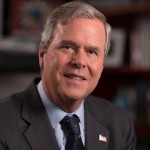 Governor Jeb Bush (R-FL) promises to cut individual tax rates from seven brackets to three: 28%, 25% and 10%. He also pledges to end the practice of worldwide taxation on U.S. businesses, which has fostered a tax avoidance strategy called corporate “inversions.” Bush also says that he will take greater control of the regulatory process, and repeal or reform the most onerous Obama regulations, including Dodd-Frank and Net Neutrality, among others. Bush promises to defeat ISIS, rebuild the military and enhance U.S. capabilities to deter and respond to cyberattacks.
Governor Jeb Bush (R-FL) promises to cut individual tax rates from seven brackets to three: 28%, 25% and 10%. He also pledges to end the practice of worldwide taxation on U.S. businesses, which has fostered a tax avoidance strategy called corporate “inversions.” Bush also says that he will take greater control of the regulatory process, and repeal or reform the most onerous Obama regulations, including Dodd-Frank and Net Neutrality, among others. Bush promises to defeat ISIS, rebuild the military and enhance U.S. capabilities to deter and respond to cyberattacks.
It does not seem that Bush has taken any positions relating to patents, although he has taken some positions on intellectual property and technology topics. His campaign website says: “We must also hold to account those who are stealing our nation’s intellectual capital.” Bush would also prefer the U.S. to maintain oversight of the Internet Corporation for Assignment of Names and Numbers (ICANN), which manages the Internet’s domain name system. Bush also wants to give the Federal Bureau of Investigation more resources to fight cybercrime.
In terms of energy policy, in addition to removing regulatory restrictions and approving the Keystone pipeline, Bush supports additional funding for basic research into the discovery of game changing technologies, saying, “world-class research contributes to jobs and technological advances that can improve everyone’s quality of life.”
For more see Jeb Bush’s profile.
Ben Carson
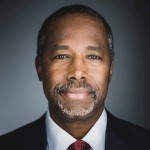 As a renowned neurosurgeon, Dr. Ben Carson should well be familiar with issues of innovation and technology, although his views on patents, intellectual property and innovation in particular are not well known.
As a renowned neurosurgeon, Dr. Ben Carson should well be familiar with issues of innovation and technology, although his views on patents, intellectual property and innovation in particular are not well known.
As you might expect with Carson being a Christian conservative and physician, two of his main issues are the sanctity of life (i.e., anti-abortion) and healthcare reform (i.e., repealing Obamacare). Carson is also in support of a balanced budget amendment, keeping Gitmo open, having strong relations with Israel, protecting Second Amendment rights and enacting a better, more streamlined tax code. His campaign website says little or nothing about the economy other than a nebulous statement that we “need wholesale tax reform.”
For more see Ben Carson’s profile.
John Kasich
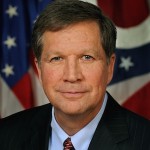 Perhaps not surprisingly given that Governor John Kasich (R-OH) is a moderate on social matters and fiscally conservative on financial matters, the issues he supports track these two themes. Kasich has voted against federal funding of abortion and to ban partial-birth abortions. Like virtually all the Republican candidates Kasich would repeal Obamacare and replace it with something that works, while at the same time not turning his back on the most vulnerable Americans. Predictably, Kasich is in favor of balancing budgets, defending the Second Amendment and strong national security.
Perhaps not surprisingly given that Governor John Kasich (R-OH) is a moderate on social matters and fiscally conservative on financial matters, the issues he supports track these two themes. Kasich has voted against federal funding of abortion and to ban partial-birth abortions. Like virtually all the Republican candidates Kasich would repeal Obamacare and replace it with something that works, while at the same time not turning his back on the most vulnerable Americans. Predictably, Kasich is in favor of balancing budgets, defending the Second Amendment and strong national security.
It does not appear as if Kasich has taken any positions relating to patents, technology or innovation. Even more surprisingly, a review of his campaign website shows precious little information about his ideas for the economy. Kasich is fond of talking about the success of Ohio, with wages growing faster than the national average and unemployment down, but he explains nothing about what he would do for America.
For more see John Kasich’s profile.
Rick Santorum
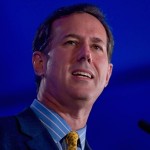 Senator Rick Santorum (R-PA) is strong on national defense, fighting terrorism, and firmly opposes Iran obtaining a nuclear weapon. He is a conservative, pro-life candidate, who also supports American workers and has outlined policies that would bring manufacturing back to America to help provide blue-collar jobs in a growing tech economy.
Senator Rick Santorum (R-PA) is strong on national defense, fighting terrorism, and firmly opposes Iran obtaining a nuclear weapon. He is a conservative, pro-life candidate, who also supports American workers and has outlined policies that would bring manufacturing back to America to help provide blue-collar jobs in a growing tech economy.
Like other conservative leaders, Santorum is against patent reform. Indeed, at a time when some Republicans are going along with the President’s agenda, Santorum has been a vocal critic of patent reform. In a Facebook post from February 2015, Santorum said that patent reform “is a direct attack on intellectual property rights and the Constitutional protection of property rights.”
In an April 2015 article in The America Spectator, Santorum argued that comprehensive patent legislation is bad for entrepreneurs and small businesses an that “conservatives should join me in supporting only targeted change to deal with abuse of the system.” Santorum would go on in this article to say: “Patent rights are essential to innovators across our economy… the enormous resources these innovators spend on inventing can only be recouped by promise of a strong patent right.”
For more see Rick Santorum’s profile.
Mike Huckabee
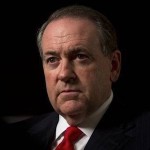 Governor Mike Huckabee (R-AR) is a pro-life Christian conservative who believes in family values, is not in favor of same-sex marriage, and thinks government is too big and spends too much. A strong defender of the Second Amendment and staunch alley of Israel, Huckabee also supports the FairTax. Since the beginning of the Obama Administration, Huckabee has bee a vocal critic of the President and has called Obamacare “a $2.2 trillion disaster that dumps millions of people into a broken, expensive system and does nothing to fix the basic problems everyday Americans face.”
Governor Mike Huckabee (R-AR) is a pro-life Christian conservative who believes in family values, is not in favor of same-sex marriage, and thinks government is too big and spends too much. A strong defender of the Second Amendment and staunch alley of Israel, Huckabee also supports the FairTax. Since the beginning of the Obama Administration, Huckabee has bee a vocal critic of the President and has called Obamacare “a $2.2 trillion disaster that dumps millions of people into a broken, expensive system and does nothing to fix the basic problems everyday Americans face.”
In terms of patents, technology or innovation, it appears as if Huckabee has taken no positions. In a post on his campaign website from May 2015, he did refer to hydraulic fracturing as innovative.
For more see Mike Huckabee’s profile.
Carly Fiorina
 Carly Fiorina says she will move all agencies to zero-based budgeting so that every agency has to justify every dollar that is spent. She also believes taxes should be lower and the federal government should be a meritocracy, not a seniority based system. She is pro-life and is a gun-owner who believes in the Second Amendment.
Carly Fiorina says she will move all agencies to zero-based budgeting so that every agency has to justify every dollar that is spent. She also believes taxes should be lower and the federal government should be a meritocracy, not a seniority based system. She is pro-life and is a gun-owner who believes in the Second Amendment.
While her campaign website does not seem to address issues of patents, technology or innovation, or even much about the economy, Fiorina did give a speech at the Newseum on March 4, 2015, in which she criticized the Innovation Act (H.R. 9), saying that it would benefit large companies, but not innovators. Fiorina explained that if the Innovation Act were to become law Thomas Edison would be considered a patent troll under. “Some of our greatest inventors would be patent trolls under this law,” Fiorina explained. “Our universities would be patent trolls. We are fixing problems that don’t exist.” She would go on to ask who benefits from patent reform, answering her question she said: “It is not the individual inventor or entrepreneur. It is not the new startup. It is not the small business struggling to find its way. It is not the engine of growth and innovation in this country.”
For more see Carly Fiorina’s profile.
Rand Paul
 Senator Rand Paul (R-KY) describes himself as 100% pro-life, believing that life begins at conception and that abortion is the taking of an innocent human life. He believes that the U.S. needs energy security, must have a balanced budget, and that reforms to the tax code are long overdue. He says that many in Washington pay lip service to the Second Amendment, but then vote to restrict gun ownership; he believes law-abiding citizens who want to own guns should be able to own guns. Paul is in favor of term limits and is against government encroachment into healthcare.
Senator Rand Paul (R-KY) describes himself as 100% pro-life, believing that life begins at conception and that abortion is the taking of an innocent human life. He believes that the U.S. needs energy security, must have a balanced budget, and that reforms to the tax code are long overdue. He says that many in Washington pay lip service to the Second Amendment, but then vote to restrict gun ownership; he believes law-abiding citizens who want to own guns should be able to own guns. Paul is in favor of term limits and is against government encroachment into healthcare.
On patents, technology and innovation, it is hard to find information about what Paul thinks. In an 2014 interview with Tech Crunch, Paul acknowledged that some Libertarians think patents should not exist, but went on to say: “I think there out to be protection for intellectual property.”
For more see Rand Paul’s profile.
UPDATED Monday, January 4, 2016, at 4:35pm ET

![[IPWatchdog Logo]](https://ipwatchdog.com/wp-content/themes/IPWatchdog%20-%202023/assets/images/temp/logo-small@2x.png)

![[Advertisement]](https://ipwatchdog.com/wp-content/uploads/2024/04/UnitedLex-May-2-2024-sidebar-700x500-1.jpg)
![[Advertisement]](https://ipwatchdog.com/wp-content/uploads/2024/05/Quartz-IP-May-9-2024-sidebar-700x500-1.jpg)
![[Advertisement]](https://ipwatchdog.com/wp-content/uploads/2024/04/Patent-Litigation-Masters-2024-sidebar-700x500-1.jpg)

![[Advertisement]](https://ipwatchdog.com/wp-content/uploads/2021/12/WEBINAR-336-x-280-px.png)
![[Advertisement]](https://ipwatchdog.com/wp-content/uploads/2021/12/2021-Patent-Practice-on-Demand-recorded-Feb-2021-336-x-280.jpg)
![[Advertisement]](https://ipwatchdog.com/wp-content/uploads/2021/12/Ad-4-The-Invent-Patent-System™.png)







Join the Discussion
19 comments so far.
jodi
January 7, 2016 09:04 pm1) Carly Fiorina is not only pro-patent but she truly understands the importance of IP.
2) Cruz was one of only a handful that voted against anti-patent bill. Actions are better than words.
3) Rand Paul is about getting back to what the Constitution says. Make the case of what the Founders recognized and intended and we’d be back to normal.
4) Trump holds numerous trademarks – an indication he may be pro-IP in general.
Edward Heller
January 6, 2016 03:21 pmstep, indeed. Power usually prevails.
I sometimes wonder at the courage of Abe Lincoln and the abolitionists going up against vested power. They, the vested interests, tried to assassinate him on his way to Washington, and got him eventually.
Look at King. He too was assassinated by the same vested interests.
Then we have the matter of Bobby Kennedy who was notorious for taking on the mob.
Jack Kennedy ruffled a lot of feathers, from the mob to Castro. But look where he was assassinated. The land of the aforementioned vested interests. Now why would the South turn against Kennedy — after all, it was their votes that got him elected? Could it have something to do with the Civil Rights Act that he had introduced?
Those who stand for justice against big power normally do not win. But they have courage.
Anon
January 6, 2016 11:30 amstep back at 16,
Absolutely correct – and often a cloud of dust kicked up over the battle of patents is to ignore the fact that being pro-patent is battling BOTH the Left and the Right.
step back
January 6, 2016 09:21 amEdward Heller @#15
In politics, the rights of the lone wolf inventor go hand in hand with the rights of the illegal Hispanic day laborer.
Both of the Left and the Right want their lawns mowed and their gadgets delivered for as low of a price as possible. That is why they turn a blind eye to misdeeds of businessmen. The point is to exploit to the maximum them who are politically weak and can be exploited. It’s not a partisan politics issue. The pox belongs to both sides of the aisle.
Edward Heller
January 6, 2016 06:26 amJust a note:
Republicans tend to be in favor of tort reform which would suggest that they would be on the side of big business and against the troll. But they also favor property rights, which puts them on the side of the inventor.
In contrast, Democrats tend dismiss property rights in favor of public policy, and are not concerned with the welfare of small inventors at the expense of the public interest.
It is hard to say in this milieu who would be better for the patent system as a whole. This probably also why patent policy has largely been non partisan.
step back
January 6, 2016 01:31 amGene @#12
That’s exactly right.
An appellate level advocate (a.k.a. lawyer) has no business playing expert witness and an appellate level adjudicator (a.k.a. SCOTUS Justice) has no business pushing in with demands for fast paced fact-based responses during 10 minute hearings. This is not the kind of stuff that lends itself to correct decision making by way of combat through surprise and unwitting bursts of admission. The players in this arena are wholly incompetent in everything they are pretending to do, from allowing unsupported facts into evidence to making fact based decisions at the spin of a dime and without the necessary years of post graduate level education in the relevant technological arts.
Have they any shame? No.
Gene Quinn
January 5, 2016 05:22 pmStep-
It would be nice just for SCOTUS to stop relying on amicus briefs for facts not in the record.
While I would love to criticize Justice Kennedy, and I suppose I have, the person to blame is the attorney who agreed with him twice that a second year engineering student could code the system over a weekend. What a joke. Ridiculous that this is who is deciding and even more ridiculous that an attorney didn’t know enough about software to push back and set the record straight. Pathetic.
step back
January 5, 2016 04:21 pmDid I forget to mention them having no business re-writing 101?
step back
January 5, 2016 04:20 pmGene @4,
I am not asking Supreme Court Justices to become experts in patent practice or in the practice of real science, especially in the intellectually challenging areas of computer related inventions and biotechnology.
However, they absolutely should know their place as being “appellate” judges and not as de novo finders of fact.
They have no business in surreptitiously sneaking in findings of fact with respect to what could be the fundamentals of scientific work, what constitutes the human “mind” or what probability distribution functions apply with regard to what might “stifle innovation” instead of promoting the progress thereof due to an inventor following Congressionally legislated law including the literal words of sections 101 and 112.
Ron Hilton
January 5, 2016 12:14 pmIt is very sad to observe that many “conservatives” in Congress have jumped on the patent troll bandwagon. I have contacted both of my US senators (Hatch and Lee) about this. I think Lee has backtracked now is more pro-patent. Hatch did some good things for patents in the past but he seems to be in the hip pocket of big business now.
Night Writer
January 5, 2016 10:41 amAs to the power of the president, I think we have seen what Obama did to the Fed. Cir. We are nearly wiped out. Obama has completely remade the Fed. Cir. into a group –as a whole– of science illiterate judicial activist. Functional claiming, abstract, forgetting to add in what a person skilled in the art knows, etc. Sheer nonsense that does nothing but create case law that is not law but equity.
Night Writer
January 5, 2016 10:32 am>Supreme Court Justice that knows anything about >patents, let alone is pro-patent or even neutral
I think the problem is that 1) all the SCOTUS are members of the cult of the scientific illiterate; 2) liberals are against patents because they are mean; and, 3) conservatives are now against patents because the big international monopolies don’t want them.
I guess hope is eternal. Maybe something will shake out.
American Cowboy
January 5, 2016 10:19 amBeing pro-business does not necessarily mean pro-patent. We have seen too many instances of the pro-business stance being stridently pro-free-enterprise, which in turn means any limitation on bare-knuckles competition (like patents) is to be viewed with skepticism.
There is also the school of pro-business thinking that being pro-business means being pro-capital, and anything that gets in the way of a banker or hedge-funder making money (like being a defendant in a patent infringement lawsuit) is to be viewed with skepticism.
There is also the pro-software-business group that says software should not be patented, and if it is, then the patent and its owner should be treated with disdain.
So, the take-away is don’t just look for the pro-business talk. Make sure your candidate says he/she/it wants a strong patent system, where patents that issue are respected, held valid when challenged, held infringed when infringed, and that adequate infringement remedies are available when infringed.
Paul F. Morgan
January 5, 2016 10:14 amWhat little a President can do to influence IPR is insignificant as compared to what Congress can do. [As demonstrated by the AIA and the Republican House passed Goodlatte Bill.] It seems that a considerable percentage of U.S. voters do not even understand that Presidents do not enact legislation in the U.S. [no matter what they promise in campaigns]. Yet voters pay far less attention to the far more important voting positions and elections of members of Congress.
Gene Quinn
January 5, 2016 08:45 amStep-
Did you see that Bill Clinton said the other day that the next President will likely get to appoint 3 Supreme Court Justices? I could have, and probably should have mentioned that. But getting a Supreme Court Justice that knows anything about patents, let alone is pro-patent or even neutral, is an impossible fantasy it seems. Sadly so. Sigh.
-Gene
Edward Heller
January 4, 2016 07:49 pmGene, it is good that some of the candidates see the picture from the patent owner’s point of view. Cruz in particular would be good for patent owners, it appears.
The AIA did a lot to change the patent system, and a lot of it not good. IPRs threaten the integrity not only of the patent system, but of our way of government, for if the same power that issues the patent sits in judgment of its validity, is that not the very definition of tyranny?
We are said to have an independent judiciary to defend liberty. But we have one equally as much to defend property. If all Cases could be decided by the executive without recourse to a court, would not the constitution be undone?
step back
January 4, 2016 05:08 pmGene,
Thank you for reminding us what powers new presidents wield.
You forgot to mention appointment of Supreme Court Justices where the latter beget for us Alice, Bilski and Mayo.
I’ll assume most candidates will reply, “I’ll pass on the Mayo” when asked about such things.
Cheers.
Paul Morinville
January 4, 2016 04:56 pmI was at the Iowa Tech Presidential Town Hall in December. While there was no discussion of patent reform other than very quick comments, O’Malley made an offhanded comment about patent trolls to the moderator, who was with the Google shill Engine Advocacy.
The comment was made in such a way that it made me believe O’Malley is a patent troll believer and he’d bring more damaging patent reforms.
Night Writer
January 4, 2016 12:59 pmCarly Fiorina would by far be the best for patents. I saw her on a talk show discuss patents where she unequivocally that innovation required a strong patent system.
She said she learned how important patents were at HP.